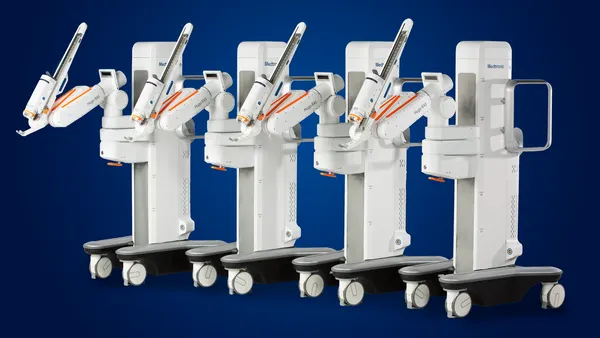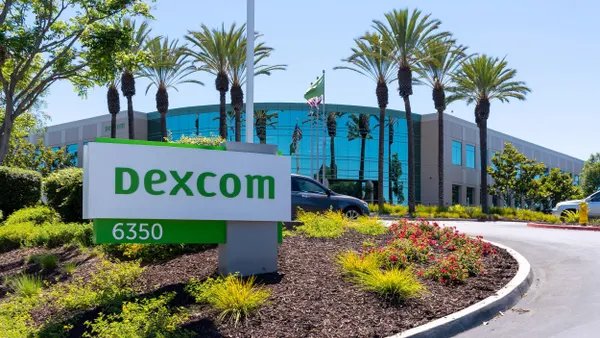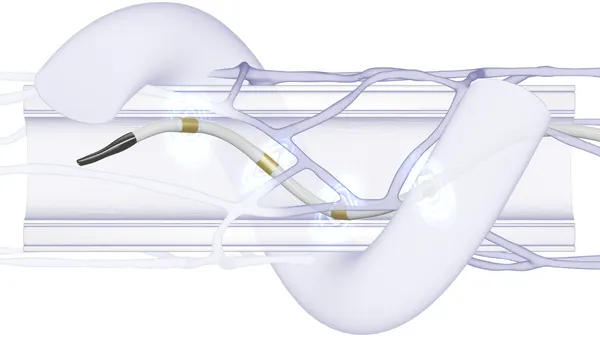Dive Brief:
- FDA has categorized Philips' expanded recall of respiratory medical devices as a Class I event. The expansion of the recall covers certain Trilogy Evo ventilators.
- Philips added the ventilators to the recall, the first phase of which began in June, late last year. The expansion followed the discovery that the foam at the heart of the original recall was also used to make some Trilogy Evo ventilators.
- The expanded recall covers 215 Trilogy Evo ventilators and 51 Trilogy Evo repair kits in the U.S., according to the FDA, a tiny fraction of the more than 5 million devices that Philips needs to repair or replace because of the foam. Jefferies analysts in a Thursday note to investors wrote that the latest Class I event is "immaterial to financials but will negatively impact sentiment."
Dive Insight:
The Philips recall is focused on respiratory devices that feature polyester-based polyurethane (PE-PUR) sound abatement foam linked to potential health risks. Initially, Philips thought its Trilogy Evo ventilators were free from the foam, leading it to leave the products off the list of devices covered by the recall it initiated in June. However, new knowledge came to light later in the year.
According to the FDA, a Philips supplier incorrectly used the foam in the muffler assembly of some Trilogy Evo ventilators. Evidence of the use of PE-PUR emerged during lab testing of the Trilogy Evo ventilator. The affected devices were shipped to customers in the U.S. and Korea.
A Philips spokesperson said in an emailed statement that the company has reached the majority of affected customers and will correct the issue over the next few months.
FDA noted the incorrect use of the foam in Trilogy Evo ventilators manufactured from April 15 and May 24, 2021, in a recent inspection. Philips received a Form 483 in response to an FDA inspection in November. The recall of the Trilogy Evo ventilators began in December.
Jefferies analysts on Thursday said it is "not a new issue" as it relates to the overall foam replacement referenced in Form 483 and that Philips "expects no financial impact given the limited number of units (~500 units & ~230 spare parts) & highlighted there have been no complaints or adverse events due to this issue."
While no users of the Trilogy Evo ventilators or repair kits for muffler assembly have reported injuries or deaths, the potential for the foam to break down, enter the air pathway of the devices, and cause the patient to inhale or swallow potentially harmful debris or chemicals led FDA to classify the situation as its most serious type of recall.
Philips has provided affected organizations with information on cleaning and filters. The current advice is for healthcare providers to closely monitor the bacteria filter for foam debris. Philips plans to provide replacement Trilogy Evo ventilators and take the affected devices back from its customers.
The addition of Trilogy Evo ventilators to the recall adds another element to a situation that has worsened since it first came to light last year. Philips recently added $250 million to its provision for the cost of the recall, which the company is aiming to complete in the fourth quarter.
Ricky Zipp contributed reporting.












